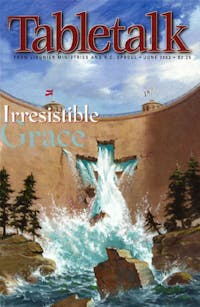
Request your free, three-month trial to Tabletalk magazine. You’ll receive the print issue monthly and gain immediate digital access to decades of archives. This trial is risk-free. No credit card required.
Try Tabletalk NowAlready receive Tabletalk magazine every month?
Verify your email address to gain unlimited access.
Man has fallen and cannot get up—or can he? The debate over man’s moral ability and the degree of his dependence upon grace in salvation has raged within the church since Pelagius and Augustine in the fifth century. But while a consensus of sorts has been reached in our day, it is not based on Biblical teaching, according to Dr. R.C. Sproul in his book Willing to Believe: The Controversy over Free Will.
Martin Luther believed that the issue of the freedom of the will was of crucial importance to the church, and Sproul agrees. The reason is that the differing views on free will impact our understanding of who we are as humans beings and, more important, of who God is.
The prevailing view, which holds that man is able to choose to trust Christ, threatens the grace and glory of God, constitutes an attack upon orthodox Christianity, and is, in essence, pagan humanism, Sproul writes. He outlines the positions on the order of salvation and asserts that regeneration precedes faith, providing Biblical backing for his view.
To help his reader understand this issue, Sproul walks through the long-standing debate in a clear fashion. The main historical figures in the drama are Luther, John Calvin, James Arminius, Jonathan Edwards, Charles Finney, and Lewis Sperry Chafer. The book summarizes the major teachings of each man in readable form. Some of the views of men such as Finney are both startling and disturbing.
Useful sidebars allow the reader to expand his research to biographies, reprints of original works, historical observations, and critiques. There is a glossary of Latin terms, as well as indexes of Biblical and historical names, and of Scripture references.
Willing to Believe, published by Baker Books, provides insight into the reasons Christians have differed on the extent of the fall of man and the way in which he is restored. Understanding this issue helps us see that help to rise from our fall comes from God above, not from within ourselves.
